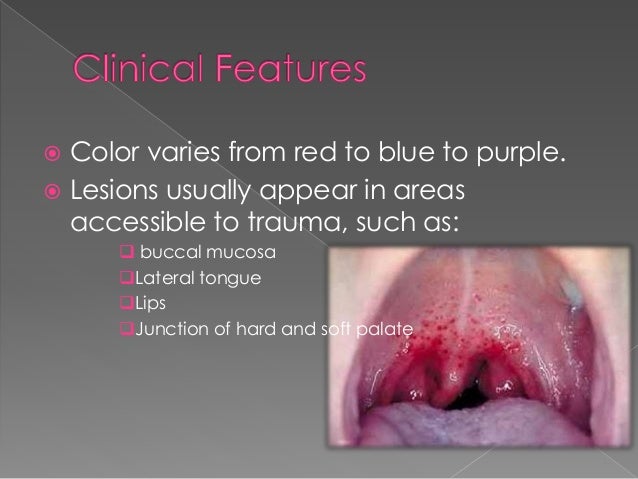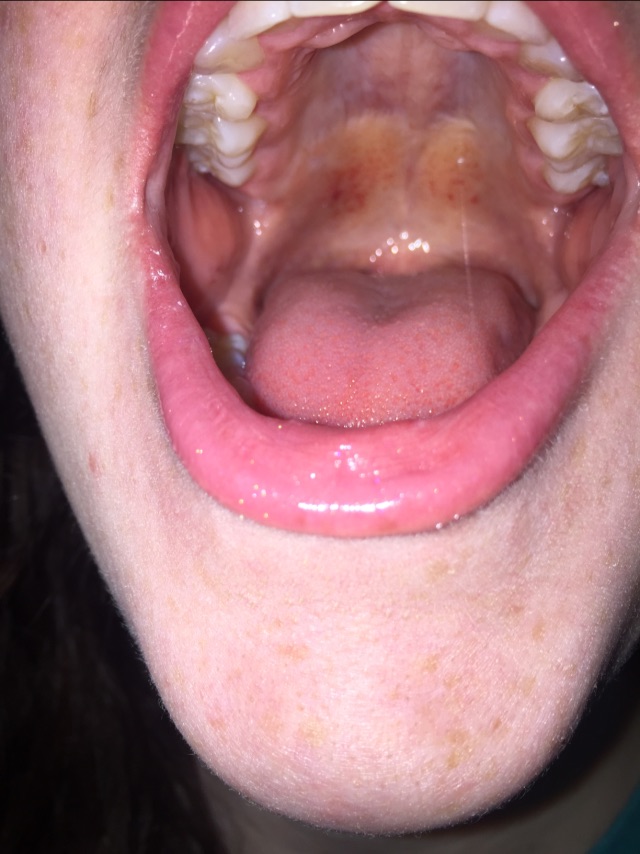Soft Palate Bruise: Symptoms, Causes, and When to Seek Medical Attention
Have you ever felt a sudden, sharp pain in the roof of your mouth, followed by a lingering ache and perhaps even a discolored area? You might be experiencing a soft palate bruise. While often harmless, understanding the causes, symptoms, and when to be concerned is crucial for proper care and peace of mind. This article will delve into everything you need to know about soft palate bruises, helping you navigate this common, yet sometimes uncomfortable, oral health issue.
What is the Soft Palate?
Before we dive into the specifics, let’s clarify the anatomy. The soft palate is the fleshy, muscular back portion of the roof of your mouth. It’s located behind the hard palate (the bony front part) and plays a vital role in:
- Swallowing: It helps to close off the nasal passages during swallowing, preventing food or liquids from entering the nose.
- Speech: It aids in producing certain sounds.
- Taste: It contributes to the overall sensation of taste.
Because of its location and delicate structure, the soft palate is susceptible to injury.
Symptoms of a Soft Palate Bruise
The symptoms of a soft palate bruise can vary depending on the severity of the injury, but commonly include:
- Pain: This can range from mild discomfort to sharp, throbbing pain, especially when eating, swallowing, or speaking.
- Discoloration: You might notice a red, purple, or even black and blue bruise-like mark on the soft palate.
- Swelling: The area may be swollen and tender to the touch.
- Sensitivity: The soft palate may be more sensitive than usual to hot or cold foods and drinks.
- Difficulty swallowing: In some cases, the swelling and pain can make swallowing difficult or uncomfortable.
- Bleeding: Minor bleeding might occur immediately after the injury.
Causes of a Soft Palate Bruise
Soft palate bruises are typically caused by trauma to the area. Common causes include:
- Trauma from food: This is the most common cause. Sharp foods like tortilla chips, hard candies, bones, or even inadvertently biting down on something hard can cause injury.
- Dental procedures: Certain dental procedures, such as extractions, root canals, or the insertion of dentures or implants, can sometimes cause a soft palate bruise.
- Vomiting: Forceful vomiting can cause damage to the soft palate.
- Mouth injuries: Accidents, falls, or sports injuries that involve impact to the mouth can lead to bruising.
- Medical devices: The use of certain medical devices, such as endotracheal tubes during surgery, can sometimes irritate or injure the soft palate.
- Foreign objects: Swallowing or accidentally putting something sharp into the mouth could cause injury.
Treatment and Management of a Soft Palate Bruise
In most cases, a soft palate bruise will heal on its own within a week or two. You can manage the symptoms and promote healing by:
- Rest: Avoid irritating the area.
- Over-the-counter pain relievers: Take ibuprofen or acetaminophen to manage pain and inflammation.
- Soft foods: Stick to soft, easy-to-swallow foods like yogurt, smoothies, mashed potatoes, and soup.
- Avoid irritants: Steer clear of spicy, acidic, or very hot foods and drinks.
- Saltwater rinses: Gently rinse your mouth with warm saltwater several times a day to promote healing and keep the area clean. (1/2 teaspoon salt in 8 ounces of warm water)
- Hydration: Drink plenty of fluids to stay hydrated.
- Ice packs: Apply ice packs to the outside of your face near the injured area for short periods (15-20 minutes at a time) to reduce swelling and pain.
When to See a Doctor or Dentist
While most soft palate bruises are not serious, it’s important to know when to seek medical attention. Consult a doctor or dentist if you experience any of the following:
- Severe pain that is not relieved by over-the-counter pain relievers.
- Difficulty breathing or swallowing.
- Excessive bleeding that doesn’t stop.
- Signs of infection: Fever, pus, increased swelling, or worsening pain.
- The bruise doesn’t improve after a week or two.
- Suspect a more serious injury.
Your doctor or dentist can assess the injury, rule out other potential problems, and provide appropriate treatment, which may include antibiotics if an infection is present.
Preventing Soft Palate Bruises
While not always preventable, you can reduce your risk of soft palate bruising by:
- Being careful when eating: Chew food thoroughly and avoid eating quickly.
- Avoiding sharp or hard foods: Be mindful of foods that could potentially injure the soft palate.
- Practicing good oral hygiene: This helps to keep your mouth healthy and reduces the risk of infection if an injury does occur.
- Wearing a mouthguard during sports: This can help protect your mouth from injury.
Conclusion
A soft palate bruise is a common and often self-limiting condition. By understanding the symptoms, causes, and management strategies, you can effectively care for yourself and promote healing. However, knowing when to seek professional medical advice is crucial. If you have any concerns, don’t hesitate to consult a healthcare professional.
Frequently Asked Questions (FAQs)
1. How long does a soft palate bruise typically last?
Generally, a soft palate bruise will heal within 1 to 2 weeks.
2. Can a soft palate bruise become infected?
Yes, although it’s not very common, a soft palate bruise can become infected. Signs of infection include increased swelling, pus, fever, and worsening pain. If you suspect an infection, see a doctor or dentist immediately.
3. What should I eat if I have a soft palate bruise?
Stick to soft, easy-to-swallow foods like yogurt, smoothies, mashed potatoes, and soup. Avoid spicy, acidic, and very hot foods.
4. Can I use mouthwash if I have a soft palate bruise?
Avoid using mouthwash that contains alcohol, as it can irritate the injured area. You can use a mild, alcohol-free mouthwash or rinse your mouth with warm saltwater.
5. Is a soft palate bruise contagious?
No, a soft palate bruise is not contagious.




